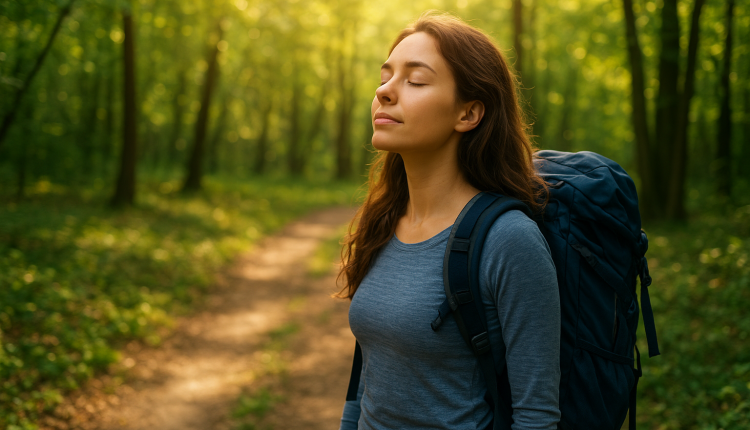Modern life often keeps people indoors, surrounded by screens, artificial lighting, and fast-paced routines. Yet, human beings are inherently connected to nature. Throughout history, survival and well-being depended on close interaction with the natural world. Today, science confirms what ancient cultures intuitively knew: spending time outdoors profoundly benefits physical, mental, and emotional health. Embracing outdoor living is more than a leisure choice; it is a cornerstone of a sustainable healthy lifestyle.
Physical Health Benefits of Outdoor Living
Being outdoors naturally encourages physical activity. Whether it is walking, cycling, hiking, or gardening, movement in fresh air strengthens muscles, supports cardiovascular health, and improves flexibility. Sunlight exposure is equally important, as it stimulates vitamin D production, which is essential for bone health, immune system function, and hormone regulation.
Fresh air also enhances lung capacity and oxygen intake. Compared to enclosed spaces with recycled air, outdoor environments provide cleaner air that revitalizes energy levels. For individuals struggling with sedentary lifestyles, even light activities such as walking in a park offer significant improvements in circulation and overall vitality.
Mental Well-Being and Stress Reduction
Spending time in nature has a measurable impact on stress levels. Studies show that natural environments lower cortisol, the body’s stress hormone, while promoting feelings of calm and relaxation. Forest bathing, a Japanese practice known as shinrin-yoku, highlights this effect, encouraging mindful immersion in forest environments to restore mental balance.
The sensory experience of nature—rustling leaves, flowing water, birdsong—acts as a natural form of meditation. These stimuli ground the mind in the present moment, reducing anxiety and improving emotional resilience. Nature also fosters creativity and problem-solving skills, making it a valuable antidote to the overstimulation of urban life.
Sleep and Circadian Rhythm Alignment
Modern lifestyles often disrupt circadian rhythms through artificial light exposure and irregular schedules. Outdoor living helps realign the body’s natural clock. Sunlight during the day regulates melatonin production, improving sleep quality and promoting restorative rest at night.
Camping studies have shown that spending just a few days outdoors without artificial lighting can reset circadian rhythms, leading to deeper, more consistent sleep patterns. Even daily walks outside can improve sleep health by signaling to the body when it is time to be alert and when it is time to rest.
Strengthening Social Bonds Through Nature
Outdoor activities often encourage shared experiences, which strengthen relationships and community ties. Families who hike, picnic, or play sports together outdoors not only improve their health but also build deeper connections. Social interactions in natural settings tend to be more engaging and less distracted compared to indoor, screen-centered gatherings.
Community gardens, outdoor fitness classes, and local hiking groups foster a sense of belonging while promoting active lifestyles. These shared experiences create support networks that motivate individuals to sustain their healthy habits.
The Spiritual Dimension of Outdoor Living
For many, time in nature brings a sense of spiritual connection. Whether through awe-inspiring landscapes, the silence of a forest, or the vastness of a night sky, nature reminds individuals of their place within something larger than themselves. This sense of connection can reduce feelings of isolation, nurture gratitude, and inspire a more mindful approach to daily living.
Practical Ways to Integrate Outdoor Living
Incorporating more outdoor living does not require drastic lifestyle changes. Simple actions, such as eating meals on a balcony, walking instead of driving short distances, or exercising in a park, bring immediate benefits. Gardening, even in small urban spaces, provides daily interaction with nature and offers both physical and mental health rewards.
Larger commitments, like weekend hikes, camping trips, or seasonal outdoor hobbies such as kayaking or skiing, deepen the connection and create memorable experiences. The key is consistency: making outdoor time a daily priority, no matter how small.
Conclusion: A Path to Balanced Living
The healing power of nature is undeniable. Outdoor living supports physical vitality, reduces stress, enhances sleep, strengthens relationships, and nurtures spiritual well-being. In a world where technology and indoor routines dominate, reconnecting with nature offers balance and renewal.
By choosing to spend more time outside, individuals embrace a lifestyle that is not only healthier but also more harmonious with the natural rhythms of life. The path to a healthier lifestyle may be as simple as stepping outdoors and allowing nature to do its quiet, transformative work.


